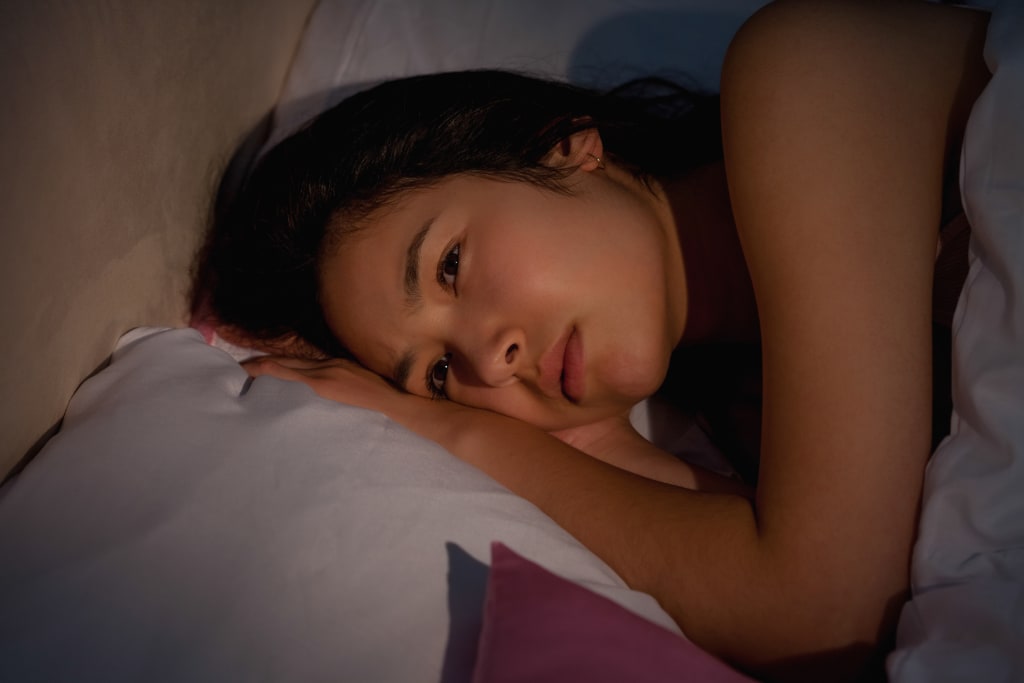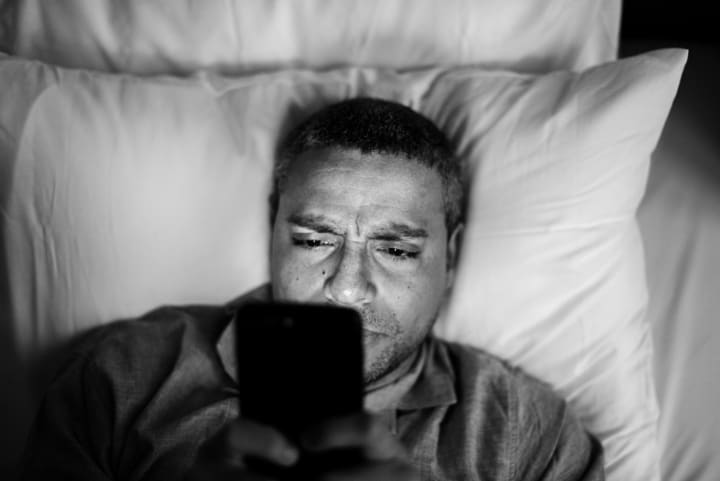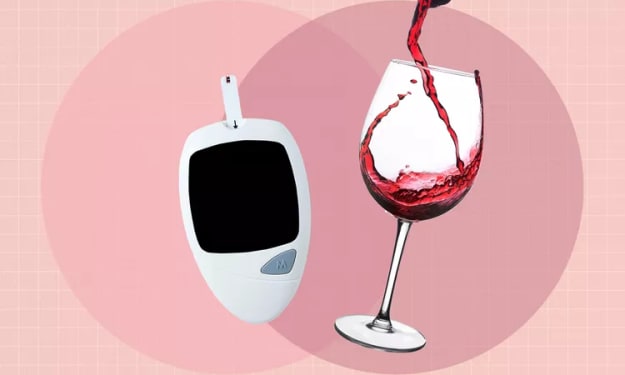10 Ways to Cope with Insomnia
Even When it Feels Like You're Going Insane at 4 AM

Sleep is a basic and necessary human function. Yet with all the advancements in modern science and medicine, we still don’t know what sleep ultimately does. When you really think on how little we know about sleep and its function, the thought becomes baffling considering this is something every human spends around a third of their life doing.
With this knowledge in mind, it might not come as a surprise then, that on the topic of treating or curing insomnia, there are not a whole lot of options available. This can be disappointing news for those struggling with insomnia and seeking remedies for the first time. No matter how far you search, there is seemingly no ultimate cure for insomnia at this point in human history. And because we know so little about the function of sleep in general, treatments for insomnia tend to remain in more of a “self-help” kind of category as opposed to receiving a direct course of action from a health professional.
Do You Have Constant (HIGH), Recurring (MEDIUM), or Occasional (LOW) Insomnia?
There are a few different frequencies at which insomnia can occur. This can be dependent on a number of factors such as lifestyle, work schedule, mental or physical health conditions, stress and, other considerations. How often your insomnia affects you could be a good indicator of how serious an issue it is and what options are going to be most effective in treating it.
If you struggle with insomnia on a nightly basis and have for some time, you are likely in a more serious category, where seeking out professional help is going to be necessary for effective management. Insomnia on this level can have drastically negative effects on your life and it’s imperative that you speak with your doctor or health professional on what options may be available to you.
For many, insomnia isn’t a nightly struggle but is often recurring enough that it is an ongoing struggle. Those who have had insomnia in the past and endured the grueling madness and torture that composes a sleepless night, are likely more prone to experience it again. This is especially true for light sleepers or those who are easily affected by stress. For this recurring or medium level of insomnia, stress management and proper routine will likely be the greatest aid in managing current insomnia and preventing future instances.
Those who struggle with insomnia occasionally would be considered on the low end of the spectrum. Insomnia to this degree is probably experienced by everyone at least a few times in life. Things such as starting a new job and feeling excited or nervous for the next day could be a temporary cause of insomnia in this category. Or perhaps there is a stressor that has come into your life, such as a loved one in the hospital for instance. This could also contribute to insomnia when someone typically doesn’t have trouble sleeping at night. This kind of insomnia is often circumstantial so in time, as your circumstances return to whatever is normal, you will likely see an improvement in your sleep as well. Knowing which category you fall into in terms of frequency, will give some insight into what options are best for you.
Whether you’re suffering from insomnia for the first time or have struggled with this issue for many years, here is a list of some of the top best practices for managing your sleepless nights.
1. Keep a routine.
Insomnia often strikes hardest when our routine changes. If you’ve been working nights and usually don’t fall asleep until after midnight, getting a new job where you now have to work early mornings will surely bring some sleepless nights. Our bodies have the ability to create an internal clock for a number of different things and waking up is one of them. When we wake up at the same time every day, we’ll often notice that over time, we don’t even need our alarm clocks anymore as we find ourselves waking up within a few minutes of the exact time we set our alarms for. Setting or changing this internal clock requires a certain amount of time and repetition though. Transitioning out of a late night schedule to an early morning one will probably bring some sleepless nights until you’ve reset your internal clock. The good news for people struggling with insomnia in this way is that in a week or two, you will likely be much less affected or even not affected at all once you have given some time for your body’s internal clock to adjust.
Ensuring you are going to bed at the same time each night and waking up at the same time each morning, will help regulate your sleep and your body’s internal clock. This is an ongoing strategy that when followed diligently, can be an excellent preventative measure in keeping insomnia at bay.
2. Save the bed for bedtime.
If we spend too much time in the bedroom doing a variety of things, our brains begin to lose a direct association between our bed and sleep. This can lead our brains to think that anything goes in the bedroom and you’ll likely find an increase in hyperactivity when you spend too much time in your bedroom throughout the day. By designating your bedroom primary for sleep, you create a direct association between your bedroom and sleep. If practiced properly, you can find yourself feeling more relaxed and sleepy simply just by entering the bedroom at the end of the day.
3. Monitor Medications
You may take medications regularly, however, many of these can interfere with or affect your ability to sleep. It is best to speak with your doctor if you are finding any correlations between insomnia and your medications.
Additionally, there is also medication designed for treating insomnia, such as sleeping pills. Although these may be effective in the short-term, using sleeping aid medications for a prolonged amount of time can do more harm than good, as your body can become dependent on them for sleep. Even “natural” supplements such as melatonin can possibly affect your sleep in a counterproductive way after extended use.
4. Food and Drink
Avoid eating large meals and drinking lots of fluids in the few hours leading up to bedtime. This can interfere with your body’s natural process for falling asleep by engaging and stimulating other systems in the body. Drinking lots of liquids in the evening can also force you to get up to use the washroom frequently, therefore, interrupting your ability to fall asleep.
Caffeine is notorious for affecting sleep. It is a stimulant after all, that we often use to “wake up” or lessen the effects of tiredness. Most people don’t realize how long caffeine can stay in our system and thus play a significant role when it comes to affecting our sleep. The half-life for caffeine is around six hours. So if you have a coffee with 100mg caffeine in it at 9 AM, at 3 PM you will have 50mg still in your system, at 9 PM you'll still have 25mg, and at 3 am you'll still have 12.5 mg.
Limiting your coffee use to a small amount only early in the morning will help ensure that most of the caffeine is out of your system by the end of the day, however, for many, it may just be best to give up coffee altogether or switch to decaf.
Another component that can have a massive effect on sleep is alcohol. Many people don’t even realize the debilitating effects alcohol can have on our sleep. This can happen not only the day of consumption but also in the following days and even weeks depending on the frequency of use. Contrary to popular opinion, alcohol is not a sleep aid and will greatly negatively affect your body’s sleep cycle if consumed regularly.
5. Mental Stimulation

Exposing ourselves to stimulating activity before bed such as watching TV or looking at our mobile devices, can keep our minds active which will extend and continue even once we have turned off the lights. For those who struggle with insomnia, avoiding technology and doing something like journaling or reading a book with easy subject matter instead, will be much more effective in preparing your body and mind for sleep.
6. White Noise
Many people who suffer from insomnia are light sleepers to begin with, so not only can it take them a long time to fall asleep, but it also doesn’t take much to wake them up either. If you’re one of these types of people, utilizing a white noise strategy such as having a fan or listening to light calming music, can help reduce background sounds or noises throughout the night. Earplugs can also be beneficial in drowning out any outside noise. Light sleepers know that the difference between a restful night and one of insomnia can often hang in the balance from a simple car alarm going off in the middle of the night or the sounds of a creaky house.
7. Magnesium
You may have heard an old-school remedy for insomnia was to drink a glass of warm milk before bed. Although consuming unnecessary liquids before bed can be counterproductive and dairy isn’t something everyone can or should drink, there is some truth in this. Namely, it is not the milk itself but rather the magnesium found in the milk that can aid in falling asleep.
Magnesium supplements are shown to help with insomnia in a number of ways. Not only does it help regulate neurotransmitters in your body which help relax your body and mind, but it also helps in the natural production of melatonin. People who have deficiencies of magnesium, such as those who consume alcohol heavily, will often see the increased effects of insomnia. Taking magnesium supplements can help aid your body in its natural sleep cycle and compensate for the occurrence of lower magnesium levels in the body.
8. CBD Oil
CBD oil is a cannabidiol l extract from marijuana that is used for a variety of purposes. One of the most prominent being to treat sleep disorders. Depending on where you are in the world will determine the ease of access you have to medical marijuana products. If you are able to access CBD oil, this may be a route worth exploring as many people claim it to be highly effective in treating insomnia.
Although research on medical cannabis and its ability to treat a variety of symptoms has been largely suppressed due to it being classified as an illegal substance in many places around the world, its recent legalization in some places such as Canada and parts of the US, opens up doors for continued scientific study to determine the further benefits of this plant.
9. ASMR and CBT Techniques
ASMR stands for Autonomous Sensory Meridian Response and has become a growing trend online in recent years for helping people fall asleep. A relatively new concept, in one of its first scientific studies it was described as: “A sensory phenomenon, in which individuals experience a tingling, static-like sensation across the scalp, back of the neck and at times further areas in response to specific triggering audio and visual stimuli. This sensation is widely reported to be accompanied by feelings of relaxation and well-being.”
The concept generally entails engaging in audio and visual stimuli, in which whispering and familiar sounds are used to create a feeling of relaxation, familiarity, and comfort. This can be anything from the sound of brushing one’s hair to the sound of a pencil writing upon a piece of paper. Although it may seem strange at first, millions of people have explored this avenue for helping with sleep and many swear by its effectiveness.
A more traditional, but highly effective practice similar to ASMR, is Cognitive Behavioral Therapy (CBT), techniques to aid in preparing the body for sleep. These include things such as full body muscle relaxation techniques, deep, controlled breathing and self-hypnosis. There is a lot of research and medical evidence to support these CBT techniques as effective in reducing anxiety and calming the mind.
10. Acceptance
Often times we fuel our insomnia by dwelling on it. The longer it takes for us to fall asleep, the more the need to sleep becomes apparent and thus, the more our mind focuses on needing to fall asleep. The problem here is that the more we focus on needing to fall asleep, the further we actually get away from it. Constantly checking the clock or allowing ourselves to feel overwhelmed with the fact that we can’t fall asleep, will likely increase anxiety, hyperactivity in your brain and make actually falling asleep more out of reach overall.
It’s a bit of a paradox but in these instances, the best thing we can do is ultimately stop focusing on trying to fall asleep. Referred to as “paradoxical intention,” when we avoid thinking about falling asleep, we are more likely to actually fall asleep. So if you’ve been tossing and turning for hours and you know you’ve missed most of your sleep that night, just take a deep breath and accept the situation for what it is. Accept that you won’t get enough sleep but acknowledge that you’ll still be fine the next day. You’ll be tired but everything will ultimately be okay and your chances of sleeping better the following night will be increased due to your existing tiredness. Your acceptance will ultimately release you of the burden of stress of not being able to sleep.
At the end of the day, insomnia will affect all of us at some point during our lives. For those who seem to experience it more often, remembering that our lifestyle, diet, schedule, and stress can all greatly contribute to difficulty sleeping. With this mind, by changing these things or how we respond to them, we can see an improvement in our sleep and have better coping strategies for the nights we do have trouble sleeping.
About the Creator
Brandon Krogel
I'm an aspiring musician, writer and filmmaker. I love to create and find the beauty in life. My goal is to translate deep emotion into artistic works and to make a positive difference in the world.






Comments
There are no comments for this story
Be the first to respond and start the conversation.